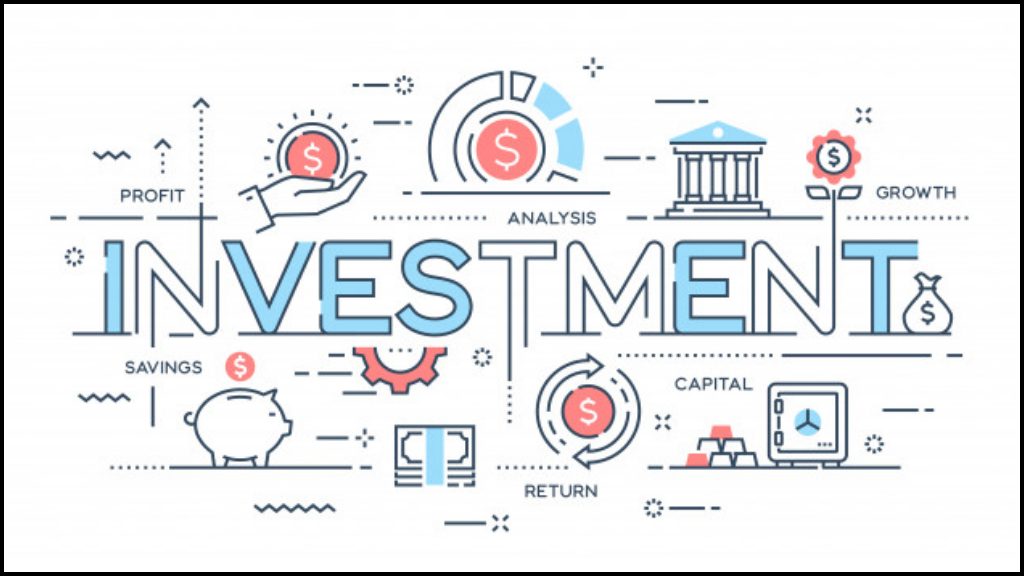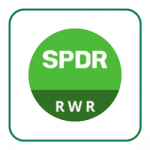This content represents the writer’s opinions and research and is not intended to be taken as financial advice. The information presented is general in nature and may not meet the specific needs of any individual or entity. It is not intended to be relied upon as a professional or financial decision-making tool.
Schwab U.S. REIT ETF (SCHH) is an exchange-traded fund that gives investors exposure to the U.S. real estate investment trust (REIT) industry. SCHH has the objective to track the Dow Jones U.S. Select REIT Index, which comprises businesses that own and manage commercial, residential, and industrial real estate assets.
The REIT portfolio offered by SCHH is diverse and includes office, retail, residential, healthcare, and industrial REITs. The fund aims to employ a passive management style to reduce tracking inaccuracy and transaction costs while investing in a representative sample of the index constituents.
REITs can potentially provide inflation protection and income production through dividends as they historically have had a low connection with other asset classes. Additionally, SCHH pays an annual dividend of 0.49$ per share and currently has a dividend yield of 2.36%.
This article’s goal is to give a thorough evaluation of the Schwab U.S. REIT ETF (SCHH).
Table of Contents
Fundamentals
SCHH’s total net asset value is around $7.8 billion as of February 2023. The total net asset (TNA) of the ETF is determined by subtracting all of its liabilities from all of its assets. To get the NAV at the market’s start or close on a certain day, the TNA is then divided by the total number of shares outstanding.
The Dow Jones U.S. Select REIT Index, which is tracked by SCHH, includes companies that meet certain liquidity and size requirements and are engaged in the ownership, management, and development of real estate properties. The index is a market-cap-weighted index, which means that larger companies have a greater impact on the index’s performance. As of February 2023, the index included 98 holdings, with a total market capitalization of approximately $620 billion.
The Dow Jones U.S. Select REIT Index, which comprises businesses involved in the ownership, management, and development of real estate holdings and that adhere to specified liquidity and size standards, is what SCHH seeks to track. Since the index is market-cap-weighted, the performance of larger firms has a bigger influence on the overall index performance. With 98 holdings and a market valuation of over $620 billion as of February 2023.
Prologis Inc., Crown Castle International Corp., Digital Realty Trust Inc., and American Tower Corp. are among the fund’s top holdings. The fund’s top 10 holdings account for almost 37% of its total net asset value. The geographic exposure of the fund is mostly concentrated in the United States, with little exposure to international markets.
The fund’s top holdings by sector are as follows:
- Specialized REITs: 26.67%
- Residential REITs: 23.47%
- Industrial REITs: 19.77%
- Diversified REITs: 14.63%
- Office REITs: 8.67%
- Retail REITs: 5.33%
- Healthcare REITs: 1.46%
The fund has an expense ratio of 0.07%, which is significantly lower than the average expense ratio for REIT mutual funds, which is currently at 0.41%. The fund also has no sales load or transaction fees, which makes it an attractive option for investors.
Investors should be aware of any potential tax consequences before investing in SCHH. The fund must distribute at least 90% of its taxable income to shareholders to qualify as a REIT ETF, so investors may expect regular dividend payments. These pay-outs may also be subject to state and local taxes in addition to federal income tax. If shareholders sell their ETF shares for a profit, they can also be required to pay capital gains taxes.
Since its inception in 2011, SCHH has had an average annual return of 7.65%. The ETF experienced 2 relatively large pullbacks, one in 2020 and one last year in 2022. The reasons were the COVID-19 pandemic, and the Russian-Ukrainian war, which led to a global inflation surge and higher interest rates. However, fiscal 2023 started well for Schwab U.S. REIT ETF, with a positive YTD of 7.47% (as of 18.02.2023)
| Yearly Return (%) | 2014 | 2015 | 2016 | 2017 | 2018 | 2019 | 2020 | 2021 | 2022 |
| SCHH | +31.87% | +4.38% | +6.47% | +3.68% | -4.24% | +22.85% | -14.81% | +41.07% | -24.99% |
Various world events in 2023 may have an impact on how Schwab U.S. REIT ETF performs, including but not limited to:
- Interest rates: REITs frequently hold significant debt, and as a result, rising interest rates may increase their borrowing costs, which may impact earnings and share values.
- Economic growth: If the world economy keeps improving and expanding in 2023, it would be good for SCHH’s performance since a healthy economy can boost real estate demand and rental income.
- Real estate market: The real estate market is influenced by regional and national economic trends. Any changes in the supply and demand for properties might affect the performance of SCHH.
- World events: Any significant global events may affect the performance of SCHH.
The performance of SCHH in 2023 could be impacted by a variety of factors, making it challenging to forecast with accuracy.
Investment Strategy

The goal of SCHH’s investment strategy is to give investors wide exposure to the American real estate market, which has the potential to generate income, diversity, and long-term growth.
SCHH’s investing approach is rather passive when compared to its benchmark index. Dow Jones U.S. Select REIT Index is a passive index that represents the performance of publicly listed REITs in the United States. As a result, the index composition and performance have a significant impact on the ETF’s investing strategy.
The ETF gives investors exposure to a diverse range of industries and regions. SCHH makes investments in REITs that own real estate in a range of industries.
While it follows the performance of the Dow Jones U.S. Select REIT Index, SCHH’s investing style is essentially passive in terms of active vs passive management. To manage cash flows and modify its holdings in order to reflect changes in the index, the ETF may, nonetheless, engage in limited trading activity.
In summary, the investment strategy of the Schwab U.S. REIT ETF is passive management giving investors exposure to the U.S. real estate market through a diverse portfolio of publicly listed REITs. The Dow Jones U.S. Select REIT Index is a passive index that the ETF replicates, but it also uses a small amount of active management to manage cash flows and make modifications to its holdings. Due to its low-cost ratio, SCHH is a desirable alternative for investors looking for exposure to the U.S. real estate market with its sector and geographic diversification.
Risks and Considerations
There are some risks and considerations to think about before investing. A few of these are:
- Market Volatility: Because of the real estate market’s potential volatility, the value of the ETF may change over time.
- Interest Rates: REITs may be sensitive to fluctuations in interest rates, which may affect their cost of borrowing and prospective profitability.
- Sector Concentration: The ETF is heavily weighted in the US real estate sector, making it vulnerable to risks unique to that country and sector, such as alterations in laws, demographic shifts, and economic conditions.
- Tax Implications: An investor’s overall tax burden may be affected by REITs since they may be subject to different tax regulations than ordinary equities.
When purchasing shares of SCHH, investors should also take their investment goals, risk tolerance, and time horizon into account and perform thorough due diligence on their own.
Conclusion
The Schwab U.S. REIT ETF is a diversified investment choice that enables investors to access the U.S. real estate industry. This exchange-traded fund (ETF) follows the Dow Jones U.S. Select REIT Index, which consists of many real estate investment trusts (REITs) that are active in a range of industries, including residential, commercial, industrial, and healthcare. Because of this, it gives investors the chance to be involved in a variety of REITs without having to buy individual real estate. In comparison to other stock investments, SCHH may potentially provide less volatility.
The Schwab U.S. REIT ETF comes with a relatively low expense ratio compared to the industry average. Considering all of the above-mentioned points; the Schwab U.S. REIT ETF can be a choice for investors who want to diversify their portfolio with exposure to the real estate industry while also keeping the costs low.
FAQs
Does Schwab U.S. REIT ETF pay dividends?
Schwab U.S. REIT ETF (SCHH) pays an annual dividend of $0.49 per share and currently has a dividend yield of 2.36%.
What are the risks of investing in SCHH?
Risks associated with investing in SCHH include market, interest rate, credit, and real estate risk. As well as other macro and geopolitical events that can adversely impact the real estate market and hence the performance of the ETF.
When did Schwab U.S. REIT ETF’s stock split?
The 2-1 split was announced on Friday, March 11th, 2022. An investor who had 100 shares of the ETF before the split would have 200 shares after the split without any change to the overall value of the holding.
WeInvests is a financial portal-based research agency. We do our utmost best to offer reliable and unbiased information about crypto, finance, trading and stocks. However, we do not offer financial advice and users should always carry out their own research.
Read More







